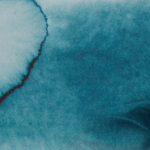The Art of Engagement: the Fishers Tales exhibition

The Fishers Tales moved from its online home into a live exhibition space at the KZNSA Gallery in Durban South Africa, the exhibition which is free to the public runs from the 2 March to 3 April 2022. The exhibition showcases arts-based storytelling on the wondrous tales and emotional connections that fishers enjoy with the ocean. Besides the photographs and artwork on the walls the public can take home copies of the beautifully printed postcards, each of which depicts a unique fisher’s story and accompanying artwork from an emerging artist in Durban.
Visual storytelling is a powerful way to connect into other people’s stories of ocean life, but in order to engage deeper around issues of coastal justice and democratic ocean governance the Urban Futures Centres and the South Durban Community Environmental Alliance uses the exhibition space to bring together diverse publics and fishers to talk about shared concerns for ocean wellbeing. In this way the artwork acts as a catalyst for conversations around how we work together towards the sustainability of our oceans in just and equitable ways that protect the most vulnerable in society.
The official exhibition opening drew an impressive crowd on the evening of the 2nd March. The launch programme included a space for fisher’s to share their stories in person with the public, as well as a talk by long-standing environmental activist Des D’Sa. The opening also screened the Lalela uLwandle (Listen to the Sea) animation and ended with a live reading by Mpume Mthombeni of the Blue Blanket poem by Dylan McGarry. If you have not seen these beautiful animations on the political conflicts around Oil & Gas prospecting in the South African Seas do click the links to watch them. In South Africa many small-scale and subsistence fishers are at the forefront of fighting for human rights to a healthy environmental in the face of coastal and ocean mining developments. As Mr. Mbhele, one of the fishers whose story features in the exhibition reminds us “pollution destroys the very resources that fishers so dearly depend on for their livelihood, this not only spoils the ecosystem but destroys the hopes of fishing for the future generations”. The exhibition opening formally thanked and recognised both the fishers and artists for their work in making visible these important livelihood and environmental concerns.
In addition to the opening the project team have held a dedicated conversation session for school children and their teachers to hear a live storytelling session by one of the fishers, John-Peter Narayanasamy, and ask questions of the project team around environmental justice in the city of Durban. A live storytelling session was also open to the public to engage with Fishers on their stories and concerns for ocean wellbeing. This coming Saturday 2nd of April 2022, from 1:30pm to 2:30pm, the Fishers Tales gallery space is open for an in-person session on ocean wellbeing with a marine science specialist and fishers from KZN. This session is for all ages and looks at how climate change and pollution has affected marine life in the ocean and how this has negatively impacted the lives of small-scale and subsistence fishers. It also offers some practical actions we can all take to mitigate against ocean degradation.
Perhaps one of the most important learnings from the Fishers Tales exhibition is how to use art as a catalyst for conversation inside formal exhibition spaces. Doing this require inviting people who would very rarely enter into formal gallery spaces, in this case subsistence fishers, as experts in their own right to engage with the public. Many members of the public have been moved by being able to not just enjoy the artwork and the postcard stories, but start up a conversation with the fishers in the room who these stories belong to. Being able to ask questions and better understand their struggles has in words of one audience members “opened her eyes” to the beauty of Durban’s beaches and all the people who make use of it, including the knowledgeable fishers she met at the opening. We hope that the exhibition space has opened up a little bit more recognition for how subsistence and small-scale fishers, in many cases along our coastlines, are fighting for a future healthy ocean that benefits us all.
The Fishers Tales project contributes towards a bigger One Ocean Hub project for inclusive and transformative approaches to ocean governance. The project is managed by the Urban Futures Centre in partnership with the South Durban Community Environmental Alliance (SDCEA), and it is funded through the Deep Emotional Engagement Programme (DEEP) Fund (administered by the One Ocean Hub programme).


